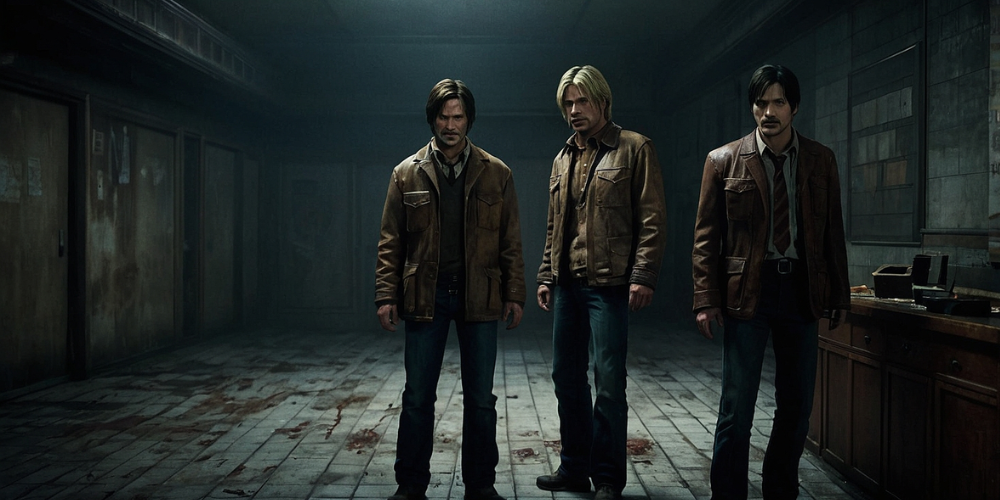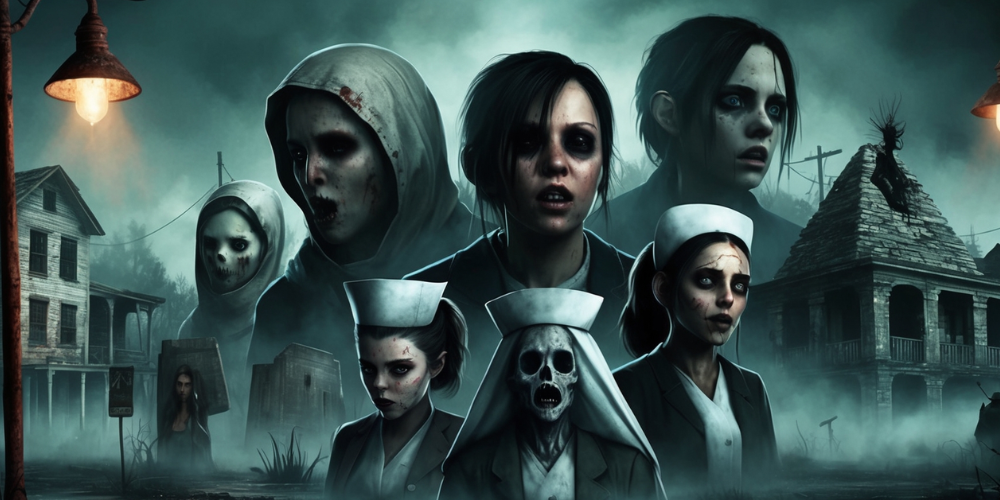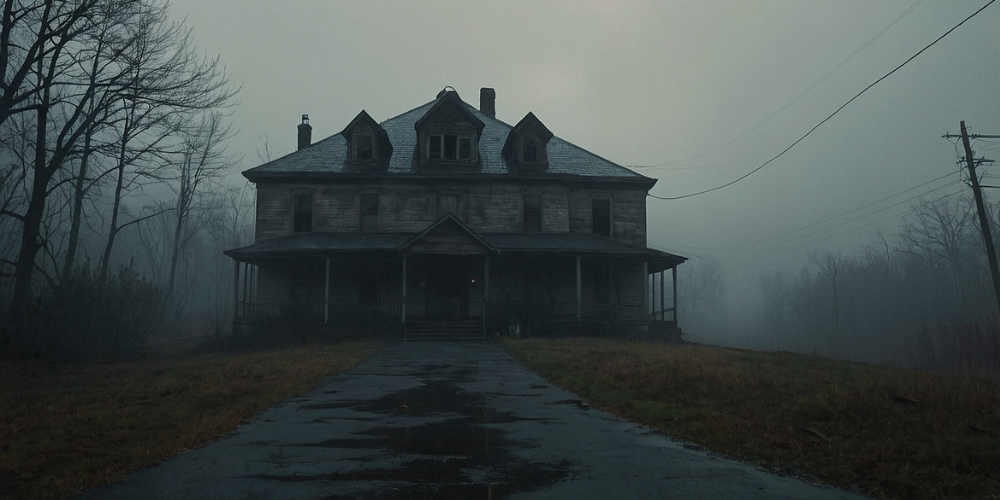Examining Psychological Horror Elements in Silent Hill Games
Nov-05-2024

As I dive into the world of Silent Hill games, I'm immediately enveloped by an unsettling atmosphere that is both haunting and intriguing. The fog that shrouds the town serves as a metaphorical veil, obscuring not just the visible but also the psychological undercurrents that lie beneath the surface. It's not merely about the monsters lurking in the shadows but rather the very essence of fear that manifests from the characters' internal struggles.
Personal Fears Brought to Life
One of the most intriguing elements of the Silent Hill franchise is its remarkable capacity to convert individual anxieties into concrete and terrifying manifestations. I find myself grappling with Harry Mason's quest in the original game—his search for his adopted daughter, Cheryl, exposes a man driven by love and desperation. Every encounter becomes a reflection of his anxieties, and I can't help but see pieces of my own insecurities materialize within the game's horrifying narrative.
The Influence of Childhood Trauma
Silent Hill 2, in particular, provides an in-depth look at how childhood trauma shapes the psyche. As I guide James Sunderland through his journey, I'm struck by his unresolved guilt and grief over the loss of his wife. Each puzzle, each enemy he faces, seems to echo his emotional battles, making the game’s horror feel intensely personal. I find myself considering how childhood experiences shape who we become and how they can manifest in the darkest corners of our minds.
Isolation as a Psychological Weapon
The sense of isolation in Silent Hill is palpable. It strikes me how the emptiness of the town becomes a psychological weapon against its inhabitants. As I navigate the desolate streets alongside the characters, I can almost feel the weight of solitude creeping in. It reflects a deeper existential dread that haunts us all; the fear of being utterly alone, trapped in our thoughts without hope or escape.

The Role of Memory and Regret
Memory plays a crucial role in the narrative, especially in Silent Hill 2. James’s fragmented recollections of his past serve to construct a complex psychological landscape. As I piece together his history, I’m forced to confront the idea of regret. Each memory conjured in the fog resonates with a haunting reminder of unresolved pasts, demonstrating how our minds can fabricate horror from our own histories.
Monsters as Metaphors
One of the most compelling characteristics of Silent Hill is its use of monsters as metaphors for psychological struggles. I’m fascinated by the iconic Pyramid Head; his imposing figure isn’t just a physical threat but represents punishment and guilt. As I encounter him, I’m compelled to reflect on my personal demons and the burdens I carry—it's a breathtakingly terrifying realization of how our fears can manifest in the form of monstrous entities.
Sound Design and Psychological Manipulation
The sound design in Silent Hill is a profound element that enhances the psychological horror experience. The ethereal whispers and unsettling sounds create an atmosphere imbued with dread, manipulating my emotions as I venture deeper into the game. I find myself on edge, awaiting the next disturbing sound that will shake my already frayed nerves. It’s a vivid reminder of how sound can infiltrate our psyche and amplify fear.
The Revelation of the Unknown
The unknown terrifies me, and Silent Hill captures this fear impeccably. The fog and darkness create a sense of disorientation; as I explore, I’m often unsure of what lies ahead. This uncertainty feeds my anxiety, reflecting a fundamental truth about fear—the more I don’t know, the more my imagination runs wild. It’s both thrilling and horrifying as I confront the shadows of what might await me.
Isolation vs. Companionship
The juxtaposition of isolation and companionship in Silent Hill is particularly poignant. Characters often confront their demons alone, yet the presence of others can complicate their journeys. For instance, when encountering Maria in Silent Hill 2, I’m struck by how she simultaneously offers comfort and confusion. The duality of fostering connection while facing solitude illuminates the complexities of human relationships and psychological struggles.
Symbolism of the Environment
The environments in Silent Hill serve as extensions of the characters’ mental states. Each area I traverse becomes a visual representation of fear, guilt, and despair. The rusted buildings, distorted landscapes, and unsettling imagery reflect an inner turmoil that echoes the characters’ psychological dilemmas. I become increasingly aware of how my surroundings can influence my emotions and perceptions, especially within the confines of horror.

Chasing Redemption
Throughout the series, characters are often on a quest for redemption, battling both outward monsters and their inner turmoil. The themes of forgiveness and absolution resonate deeply with me as I witness their struggles. The characters’ quests mirror the all-too-human desire for peace, often illustrating that the path to redemption is riddled with psychological challenges that reflect our own lives.
Female Fear and Sexuality
Silently woven into the fabric of Silent Hill is the exploration of female fear and sexuality. As I analyze the series, I sense an underlying commentary on how society perceives women's fears and vulnerabilities. The depiction of female characters often oscillates between strength and victimhood, making me contemplate the complexities of gender in horror narratives. The sense of threat that looms over these characters amplifies the psychological horror by tapping into societal fears surrounding femininity.
The Impact of Guilt and Shame
Guilt and shame feature prominently within the psychological landscape of Silent Hill. As I unravel the storylines, I cannot ignore how these emotions drive characters to confront their darkest fears. The game illustrates that these feelings are often inescapable, leading to an interminable cycle of punishment and suffering. It serves as a painful reminder of how our own regrets can consume us, manifesting as both mental and physical torment.
Unraveling the Human Psyche
Exploring Silent Hill is akin to peeling back layers of the human psyche. With each game I experience, I feel as if I am delving deeper into complexities of mental health, trauma, and existential dread. Silent Hill paints a vivid portrait of how our inner nightmares can spiral into manifestations of horror. The psychological intricacies layered within the gameplay compel me to confront my own fears and uncertainties.
The Ephemeral Nature of Reality
Lastly, the games challenge the very nature of reality. In Silent Hill, reality is fluid; it morphs as characters confront their fears. This notion rattles my perception of what is real and what is merely a reflection of the mind's darkest recesses. It makes me ponder the fragility of sanity and how one’s reality can be irrevocably altered by psychological turmoil. Each playthrough serves not just as entertainment but as a disturbing, yet enlightening journey through the human mind.







